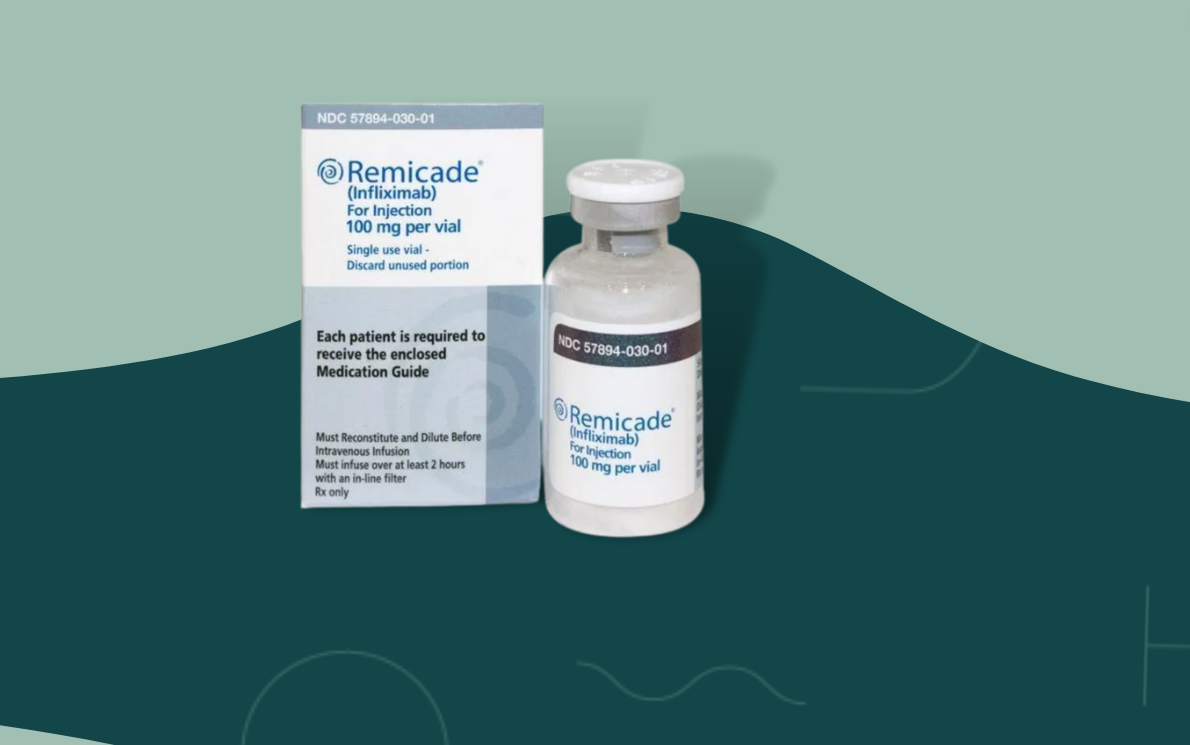From Active-Duty Medical Officer To Gastroenterologist: A Conversation With Dr. Paredes
We caught up with Dr. Paredes to learn more about his work as a gastroenterologist, the biggest misconceptions around Crohn’s disease, and his hopes...
5 min read
![]() Nicole Conceicao, NP
:
Jan 12, 2023 10:00:00 AM
Nicole Conceicao, NP
:
Jan 12, 2023 10:00:00 AM

Considering Remicade infusions? Discover how to prepare, what to expect, and what happens next.
It's common to have questions regarding the prescription of any new medication, especially an ongoing biologic infusion. How should you prepare? What should you expect? What happens next?
If you're new to Remicade (infliximab) infusions, we've provided some pointers to help you prepare for your first infusion.
What is Remicade & what is it used to treat?
What is Remicade?
Remicade is the brand name for a monoclonal antibody (infliximab) used to treat several autoimmune diseases including Crohn’s disease, ulcerative colitis, rheumatoid arthritis (in combination with methotrexate), Ankylosing spondylitis, psoriatic arthritis, and plaque psoriasis.
How does Remicade work?
Remicade can help alleviate symptoms, induce and sustain remission, encourage intestinal healing, and reduce or eliminate the need for steroids. Individuals who take Remicade for inflammatory bowel disease (IBD) symptoms typically experience symptomatic relief or a period of inactivity in the disease process.
Remicade inhibits the action of a protein produced by the immune system known as tumor necrosis factor-alpha (TNF-alpha), which causes the immune system to attack healthy parts of the body. Those suffering from certain diseases may have too much TNF-alpha.
Rather than Remicade, your healthcare provider may prescribe an infliximab biosimilar such as Avsola, Inflectra, or Renflexis. According to the FDA, biosimilars have no clinically meaningful differences from their reference drug.
READ MORE: Inflectra vs Remicade: What's The Difference?
How is Remicade administered?
Your healthcare professional is responsible for supervising and guiding the administration of Remicade through intravenous (IV) infusion. The infusion process lasts for at least two hours and, after three induction doses, subsequent infusions occur at eight-week intervals.
Your Remicade dosage is determined by the severity of your illness, as well as your weight. During treatment, your healthcare provider will sterilize the area around your arm with rubbing alcohol. The needle will be inserted and taped in place. Then, the medication will be infused into your veins.
During the infusion, your healthcare provider will check your vital signs at 30-minute intervals. The caregiver will also watch you closely throughout the infusion process.
When you arrive at a Local Infusion center for your first Remicade infusion session, our team members greet you warmly and escort you to your private suite where you begin the two-hour process in comfort.
What to do before your Remicade infusion
First, take a trip to your doctor’s office. Tell your doctor if:
Once your doctor has cleared you to use Remicade and provided a referral, you can proceed to book an infusion appointment.
It's essential to get a good night's sleep, drink plenty of water, and eat something before receiving a Remicade infusion. A healthcare professional will conduct general health assessments and record your vitals, including your blood pressure, pulse, respiration, weight, and temperature.
What to bring to your infusion session
On the day of your appointment, bring the following items:
Since the infusion process lasts a couple of hours, you may need to take your smartphone, laptop, tablet, or book with you to pass the time. Or, if you’d prefer, you may decide to take a pillow with you and nap instead.
Also, it’s recommended to wear loose-fitting clothes and layers to prepare yourself for temperature changes.
Some other non-essentials you can take to your infusion therapy appointment include:
What to expect after your infusion
Our healthcare providers will observe you for roughly two hours following the administration of Remicade or one of its biosimilars (Avsola, Inflectra, or Renflexis), to look out for any potential allergic reactions or side effects.
Acute (i.e. immediate) reactions that develop during treatment (and typically subside over time) may include fever/sweating, sinus infections, blood pressure variations, nausea, and itching. IBD patients who develop antibodies to infliximab have a higher risk of developing acute reactions.
Delayed reactions that develop within 3-12 days after infusion may include muscle/joint aches, lethargy, and rashes.
If you're worried about more serious (but rare) side effects such as weight gain, nervous system disorders, liver injury, lymphoma or skin cancer, please let your dedicated Infusion Guide know. We'd be happy to discuss further with you.
If you notice any of these signs, please report to your doctor or dedicated Infusion Guide immediately.
Medications to prevent reactions
Select reactions to Remicade can be managed using meds. According to certain studies, the medications typically recommended for acute infusion reactions are epinephrine and diphenhydramine.
With mild reactions, physicians stop the infusion treatment and evaluate the patient for signs and symptoms of an acute reaction, in which case oral diphenhydramine is administered.
For moderate-to-severe reactions, the physician stops the infusion and immediately administers epinephrine and/or intravenous diphenhydramine.
FAQs about Remicade infusion therapy
How Local Infusion can help
If Remicade is part of your autoimmune disease treatment plan, then consider Local Infusion for your ongoing care. We make it possible to receive therapy in a modern, state-of-the-art center with private suites thoughtfully designed with your comfort in mind.
You also get a dedicated Infusion Guide to support you on your treatment journey every step of the way, including answering any questions, handling prior authorization, providing information on how to access financial support, and more.
READ MORE: Why Local Infusion
We caught up with Dr. Paredes to learn more about his work as a gastroenterologist, the biggest misconceptions around Crohn’s disease, and his hopes...
Learn more about Pemgarda, a groundbreaking preventative treatment offering the immunocompromised a new layer of defense against Covid-19.
Insurance, claims, prior authorization, precertification, deductibles….the list of healthcare terms goes on and on (and on). Needless to say, it’s...